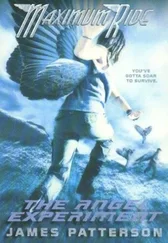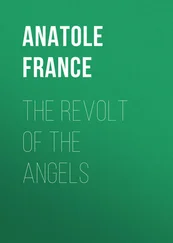Yukio Mishima - The Decay Of The Angel
Здесь есть возможность читать онлайн «Yukio Mishima - The Decay Of The Angel» весь текст электронной книги совершенно бесплатно (целиком полную версию без сокращений). В некоторых случаях можно слушать аудио, скачать через торрент в формате fb2 и присутствует краткое содержание. Год выпуска: 2010, Издательство: CCV Digital, Жанр: Старинная литература, на английском языке. Описание произведения, (предисловие) а так же отзывы посетителей доступны на портале библиотеки ЛибКат.
- Название:The Decay Of The Angel
- Автор:
- Издательство:CCV Digital
- Жанр:
- Год:2010
- ISBN:нет данных
- Рейтинг книги:5 / 5. Голосов: 1
-
Избранное:Добавить в избранное
- Отзывы:
-
Ваша оценка:
- 100
- 1
- 2
- 3
- 4
- 5
The Decay Of The Angel: краткое содержание, описание и аннотация
Предлагаем к чтению аннотацию, описание, краткое содержание или предисловие (зависит от того, что написал сам автор книги «The Decay Of The Angel»). Если вы не нашли необходимую информацию о книге — напишите в комментариях, мы постараемся отыскать её.
The Decay Of The Angel — читать онлайн бесплатно полную книгу (весь текст) целиком
Ниже представлен текст книги, разбитый по страницам. Система сохранения места последней прочитанной страницы, позволяет с удобством читать онлайн бесплатно книгу «The Decay Of The Angel», без необходимости каждый раз заново искать на чём Вы остановились. Поставьте закладку, и сможете в любой момент перейти на страницу, на которой закончили чтение.
Интервал:
Закладка:
He came back indoors. It was five minutes till four. The first glimpse of the Zuiun-maru drove away sleepiness. The morning twilight was coming on, the plastic strawberry houses were like a snowy landscape. He had no trouble identifying the ship. He aimed the blinker at the red port light and the name promptly came back. In the dawn light the Zuiun-maru glided slowly into 3-G.
At four thirty there was a very faint flush over the clouds to the east. The line between sea and land was clear, the water and the reflections of the fishing boats took form and place.
At the desk, in light barely strong enough for writing, Tōru wrote over and over again, to no purpose: Zuiun-maru, Zuiun-maru, Zuiun-maru. The light was stronger by the moment. He glanced up, and could make out folds of waves.
The sun rose at four fifty-four. Tōru went to the east window and pulled back the glass to let in the beauty of the last moments before sunrise.
Just over the spot where the sun would rise, delicate clouds drew in deep relief pleats exactly like the folds of a skirt, as if there were a chain of mountains over the sea. Layers of rose-colored clouds trailed above, with here and there apertures of an ashen green. Below the ridge of mountains clouds of light gray surged up like the sea. The mountain relief caught the rose glow down to its lower skirts. Tōru could almost see dots of houses on the far slopes. Above them was a vision of a rose coming into bloom.
It was from here, he said to himself, that he had come. From the mirage land, visible occasionally through openings in the dawn sky.
The morning breeze was chilly, the groves below the window had taken on a fresh green. The porcelain insulators on the pylons stood out white in the dawn. Eastward and eastward the line of pylons stretched, toward the distant point of the sunrise. But the sun did not come out. Just at the moment of sunrise the rose faded and was sucked up into blue clouds. In place of the vanished rose, clouds scattered like silk threads; but there was no sun.
It finally made its appearance at five past five. From an opening in the dark gray clouds at the horizon, just above the second pylon, came the first glimpse of the sun, carmine, melancholy, as if it were not rising but setting. The top and the bottom were cut off by a screen of clouds, like shining lips. An ironic smile of thin lips rouged in carmine floated briefly among the clouds. Thinner and thinner, fainter and fainter, they left a sardonic smile that was there and not there. The higher stretches of the sky carried a warmer, brighter light.
By six, when a ship with a cargo of sheet iron came in, the sun was astonishingly high, a ball of light dim enough for the naked eye. In its weak light, the sea to the east was a cloth of gold.
Tōru called the tugboat and the pilot’s house.
“Good morning. The Nitchō-maru and the Zuiun-maru have come in. Yes, please.”
“North Fuji? The Nitchō-maru and the Zuiun-maru are in. Yes. At four twenty, the Zuiun-maru , three-G.”
6
 THE CHANGE of shifts came at nine. Tōru left the chocolates for his successor. The weather forecasters had gone astray. It was a beautifully clear day. The sun as he waited for his bus was too bright for eyes that had not had enough sleep.
THE CHANGE of shifts came at nine. Tōru left the chocolates for his successor. The weather forecasters had gone astray. It was a beautifully clear day. The sun as he waited for his bus was too bright for eyes that had not had enough sleep.
The road off toward the Sakurabashi station of the Shimizu Railroad had once gone through paddies, but they had all been filled in and subdivided. The bright flats were a tasteless jumble of new shops, like Main Street in an American country town. Getting off the bus, Tōru turned left across a brook. Beyond was the two-story apartment house where he lived.
He went up a stairway with a blue awning and opened the door at the end of the second floor.
It was as he had left it, neat and tidy, two rooms with kitchen, six mats and four-and-a-half mats, dim behind shutters. Before he opened the shutters he went to turn on the heater for the bath. He had a bath of his own, albeit a small one, heated by propane.
Worn out from looking, Tōru, who had no occupation but to look, leaned against the windowsill to the northwest and looked at the Sunday-morning bustle in the new houses beyond the orange grove. Dogs barked. Sparrows flitted among the orange branches. On south verandas men who finally had houses of their own were sprawled on rattan chairs reading newspapers. He caught glimpses of aproned women inside. The newly tiled roofs were a violent blue. The voices of children were like splinters of glass.
Tōru liked to look at people as at animals in a zoo. The bath was ready. Always after work he had a long bath and scrubbed every hollow of himself. He only had to shave once a week.
Naked, he creaked across the washing platform and got in without washing. No one would use the bath after him. He had set the thermostat, and it had missed by no more than a degree or two. Warmed, he got out and washed at his leisure. When he was tired and short of sleep, a cold sweat came out on his face and at his armpits. He stirred up a good suds and scrubbed industriously at his armpits.
The light from the window slipped down blue-white over his upraised arms and caught the left nipple, beside an armpit now hidden in suds. He smiled. He had been born with three inlaid moles, like the Pleiades. From he did not know when, they had seemed to him like proof in the flesh that limitless bounties were his.
7
 HONDA and Keiko Hisamatsu were perfect companions in old age. When he went walking with Keiko, everyone took them for an affluent, well-matched husband and wife. They could see each other every other day or so and not be bored. They worried about each other’s cholesterol count and hemorrhoids and possible malignancies, and caused doctors much amusement. They changed hospitals with great frequency, suspicious of all doctors. They even had an understanding on trivial economies. They were assiduous students of the psychology of the old, their own aside.
HONDA and Keiko Hisamatsu were perfect companions in old age. When he went walking with Keiko, everyone took them for an affluent, well-matched husband and wife. They could see each other every other day or so and not be bored. They worried about each other’s cholesterol count and hemorrhoids and possible malignancies, and caused doctors much amusement. They changed hospitals with great frequency, suspicious of all doctors. They even had an understanding on trivial economies. They were assiduous students of the psychology of the old, their own aside.
They had even struck a balance in irritability. The one would take on a discreet objectivity when the other was a victim of meaningless irritation, and each fed the other’s pride. They nursed each other’s lapses in memory. When either would forget what he had just said or say quite the opposite, the other (why it could as easily have happened to him) would politely refrain from laughing.
They were both a little vague on things that had happened these last ten or twenty years; but in ancient matters having to do with family and the like they competed in precision as if reading from a golden record. And often they would become aware of the fact that, neither of them listening to the other, they had been lost in concurrent soliloquies.
“Sugi’s father—he was the founder of Sugi Chemical. It’s since become Nihon Chemical. His first wife was from an old family in his home town, name of Honji. It didn’t work and she took back her maiden name. Then she remarried, a second cousin. She was a nasty one, and she bought a house right beside his in Kagomachi. Then some diviner everyone was talking about—what was his name—anyway he told her the well was in a bad direction. So she did exactly what he told her and put up a shrine looking out from the garden. People came to pray at it in swarms and hordes. It only lasted until the air raids, but—” That was the sort of soliloquy in which Honda came to indulge himself.
And this is the sort of thing Keiko would say: “She was the daughter of a mistress, and that made her a half sister of Viscount Matsudaira. She fell in love with an Italian opera singer and got disinherited and chased him off to Naples and he ran out on her. She tried to commit suicide. It was in all the papers. A cousin of Baron Shishido’s wife, Baron Shishido would have been her uncle, anyhow it was the Sawado family this cousin married into. She had twin boys, and no sooner had they turned twenty than they were killed in traffic accidents one right after the other. They were models for Twin Buds of Sorrow. It’s very famous. You may have read it.”
Читать дальшеИнтервал:
Закладка:
Похожие книги на «The Decay Of The Angel»
Представляем Вашему вниманию похожие книги на «The Decay Of The Angel» списком для выбора. Мы отобрали схожую по названию и смыслу литературу в надежде предоставить читателям больше вариантов отыскать новые, интересные, ещё непрочитанные произведения.
Обсуждение, отзывы о книге «The Decay Of The Angel» и просто собственные мнения читателей. Оставьте ваши комментарии, напишите, что Вы думаете о произведении, его смысле или главных героях. Укажите что конкретно понравилось, а что нет, и почему Вы так считаете.











